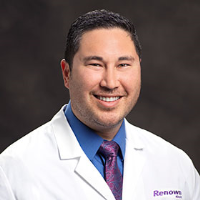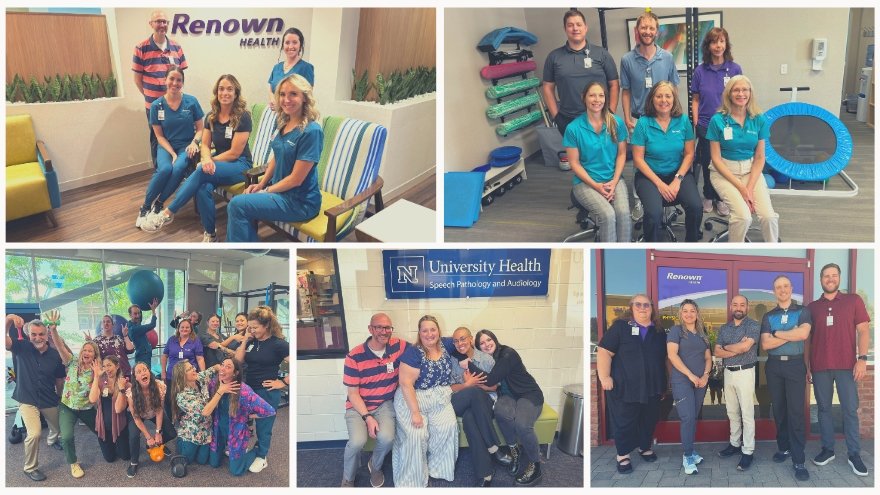
Physiatry Neuro-Rehabilitation

Physiatry Care
Physiatry helps people move better and feel less pain. It treats problems with the brain, nerves, bones and muscles. The goal is to help patients regain strength, stay independent, and improve their quality of life.
For more information, please call: 775-982-3608
To see if you may benefit from treatment, ask your primary care physician for a referral to the Renown Physiatry Neuro-Rehabilitation Clinic.
Follow-up Appointments
Some visits need a provider’s order before you can schedule online. When your care team places this order, it appears in MyChart and lets you book your follow-up at the right time. If you don’t see an option to schedule yet, it may mean your provider hasn’t placed the follow-up order. Once it’s ready, MyChart will show you next steps.
What Is MyChart? Learn how to get started.
Patients with functional deficits and secondary medical conditions as a result of the following:
- Stroke
- Spinal cord injury
- Brain injury
- Amputees
- Other patients with neurologic diagnoses
We also address equipment needs relating to specific conditions such as spasticity, neuropathic pain, neurogenic bowel and bladder problems, mood/behavior and sleep issues concerning a patient's diagnosis.
Neuropathic Pain
Millions of patients suffer from neurological diseases every year that affect their muscles, strength and sensation. This includes stroke, brain Injury, multiple sclerosis and spinal cord injury. In some cases, patients suffer from neuropathic pain as a result of their neurological disease.
Symptoms may manifest as tingling, pins and needles, burning, shock-like sensations and deep aches There may be options to help reduce these symptoms and increase quality of life.
Healthcare After Stroke
Every year over 500,000 people suffer from a new stroke. Many patients are left with lasting impairments that significantly affect their function and quality of life. Symptoms following a stroke may include:
- Abnormal muscle tightness on the affected side
- Nerve pain on the affected side
- Changes in bowel or bladder habits
- Need for specialized equipment
- Fatigue
- Depression
If you or a loved one have suffered from a stroke and are experiencing any of these symptoms, you may benefit from evaluation in Renown’s Neuro-Rehabilitation Clinic.
Spasticity Treatment
Millions of patients are impacted by neurological diseases such as strokes, brain injuries, spinal cord injuries and multiple sclerosis. As a result, many patients develop an increase in their muscle tone, which they cannot control. This is called spasticity and can present as tightness in muscle groups, uncontrolled muscle spasms, rigid extremities and resistance to stretching.
Spasticity can have a significant effect on a person’s ability to perform daily functions such as:
- Getting out of bed
- Walking or using an assistive device for locomotion
- Carrying out daily hygiene tasks
- Making meals and eating
There are solutions to help control spasticity which could improve your quality of life.




